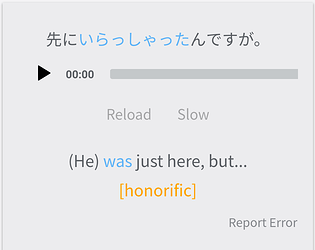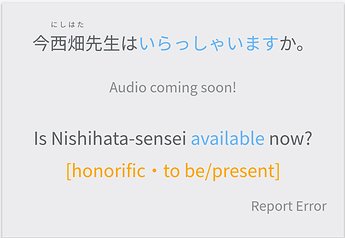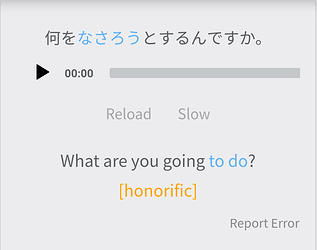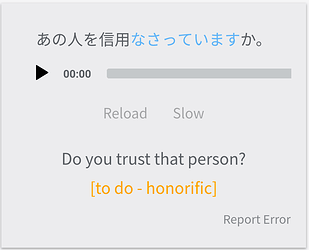I’ve recently studied the grammar points for なさる, いらっしゃる, おになる, etc and I’m having trouble with them because in some sentences you’re supposed to use the るform and sometimes theます form but I can’t see when I should use which and I keep getting reviews wrong, could anyone guide me on this?
I also don’t know when to use the お in (お)いたする( ;´∀`)
Do you have any specific example sentences?
Yes,
For example
There the る form is used
but on that one the ます form is used
Here, for example it’s saying なさろう(vs なさりましょう).
But on this one it’s the ますform. On those last two it’s not る vs ます but it’s still formal/informal which is what I mean I’m having trouble with.
Thanks for your response!
Hey!
Generally, humble language and honorific language are used in polite form.
BUT
The polite form doesn’t usually precede subordinate cases, modified nouns, in most cases it is marked just on the end of a sentence (because it would sound too polite another way, though polite forms are often used with が).
So if the humble or honorific phrase is not at the end of the sentence, then some other phrase that is on the end of sentence takes polite form and hum/hon phrase takes short form.
First example:
先にいらっしゃったんですが。
The polite です following ん marks politeness. In theory, ん works here as a noun, so it’s modified by いらっしゃった.
In the second example
今にしはた先生はいらっしゃいますか
いらっしゃる is at the end of the sentence, so takes a polite form.
In the third example:
何をなさろうとするんですか?
なさろう is not at the end of the sentence so it is in short form.
The fourth example is like a 2nd one.
Is it a bit more clear now?
All of those sentences are in polite form. The problems you’re having actually have nothing to do with honorific forms, but other grammar points. I’d recommend reviewing んです and ようとする.
Everything is much clearer now, thank you both!




